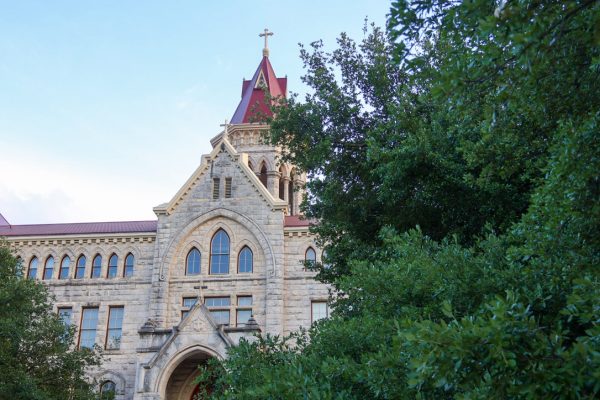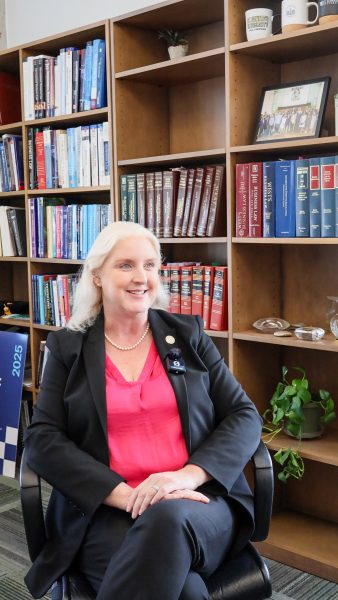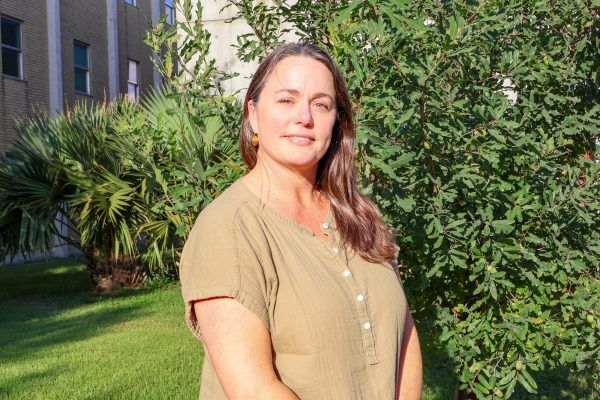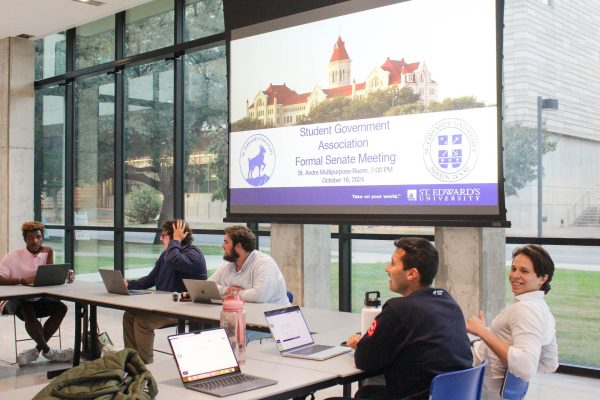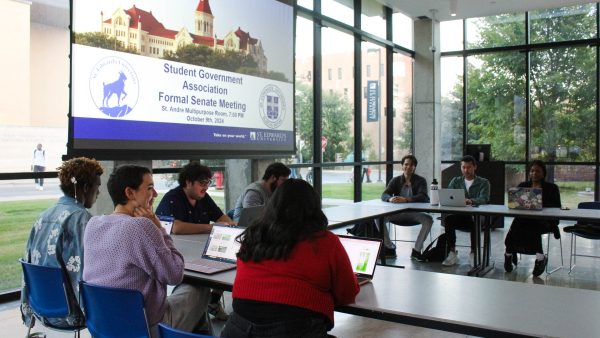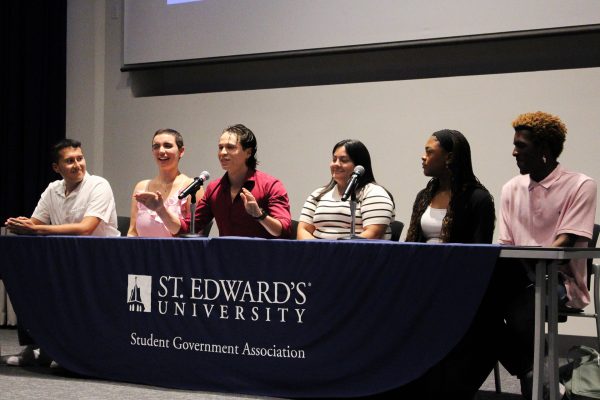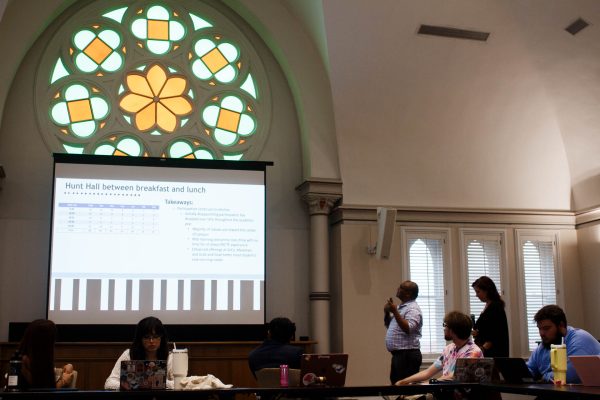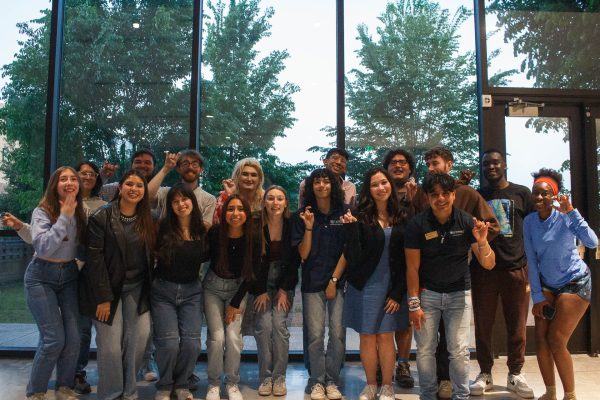SGA attempts to impeach student body president, fails on technicality
Student Government Association senators had a discussion to call an impeachment hearing for student body President Jonathan Cruz during a closed session of a formal senate meeting on Thursday.
During the Nov. 5 formal senate meeting, Vice President Jonathan Edwards asked the gallery to clear the room. Senators then motioned, and seconded, a vote to call an impeachment hearing during a closed meeting.
During the meeting, senators were also presented with their performance reviews. This was supposed to be presented to the public during the formal senate meeting. Eight senators failed their performance review while four senators passed.
However, SGA Parliamentarian Faith Castillo has deemed the impeachment motion invalid due to the fact that there was no official notation of such a matter on the agenda and no presentation of a petition, which are both required for impeachment, Edwards said in an email on Nov. 6.
“Impeachment may occur if any elected or appointed member has committed high crimes and is in contempt of their office. A motion for impeachment with the presentation of said petition must be presented and receive a two-thirds (2/3) majority vote of the Senate,” Article XII, Section 3 of the SGA Government Code states.
SGA Advisor Carey Mays says that for the vote to be legitimate it has to be held during a formal senate meeting. Since the vote happened after the formal meeting had already ended, it is seen as a discussion rather than a vote.
“The ‘vote’ was not necessarily a vote because it didn’t happen in a formal SGA meeting while it was in session. So at the time, when the possibility of that was mentioned, it was just in an informal meeting between the senators,” Mays said.
In a statement issued by Cruz to Hilltop Views on Nov. 6, he said he is not aware of an active impeachment process though he knows there were discussions after the SGA meeting on Thursday.
“It seems there are some within SGA that believe I need to be doing a better job in my role as President of SGA … I agree that there are areas that I need to improve upon and continue to be open to feedback that could help me serve the student body as we move forward,” Cruz said in the statement
Both Sens. Andrea Ojeda and Kennedy Namis expressed concern over the wording in the codes and the confusion it caused.
“The codes were so vague, we weren’t sure if we needed to have a pre-impeachment trial before the impeachment trial to decide if we were going to move forward … Basically we weren’t sure what the procedures were. Most of us thought that the conversation we had on Thursday was just a conversation,” Ojeda said.
If senators chose to hold another vote before the SGA formal meeting scheduled on Nov. 19, a special session would have to be called, said Mays.
For a special session to be called, an agenda would have to be sent out 24 hours in advance, according to the codes.
As of Monday evening, Edwards says he had “not received communication from any senator requesting a special session as of yet.”
In regards to the aforementioned petition, details as to what it looks like and what it must include were not found in the government code by Hilltop Views.
“In the past [SGA] has had a signature petition,” Mays said.
It is up to the parliamentarian to interpret what the petition is and how the senate should move forward.
“Upon review of the codes, information regarding proper action is vague and at, some points, absent. Therefore, it will require a reasonable amount of time to ensure the most fair, professional, and appropriate approach be taken regarding this matter,” Castillo said in an email on Nov. 6.
If the senators choose to vote again to hold an impeachment hearing, Cruz has the opportunity to respond.
“The accused member reserves the right to present testimony either in person or in writing when the vote of official censure takes place,” according to the SGA Government Code.
If Cruz were to be impeached, Edwards would then take over the presidential position and its duties. A student vote for a new vice president would have to be held, but the timing could be difficult, says Mays.
SGA recall attempt 2012
In another SGA case at St. Edward’s in Spring 2012, both the vice president and president were recalled by the student body and then later reinstated.
Students rounded up 274 signatures for their petition. A list of grievances included:
Students did not agree with SGA’s decision to spend approximately $4,000 on Three.Twenty. Nine: An Urban Picnic.
The lack of resolutions passed by SGA during the school year.
The lack of communication about the impact of SGA’s tobacco legislation.
Students claimed the president and vice president were unprofessional and disrespectful toward others.
They also claimed that the vice president believed the student body to be apathetic toward SGA.
The recall would have also required a special election within 30 days. However, the Internal Affairs Director, who was in charge of interpreting the codes and constitutions of SGA deemed the recall illegitimate.
Because the recall happened at the end of April, it did not give the student population reasonable time to vote in new representatives. Since the entire recall process could not be carried out, it was deemed to not represent the whole student population. The vice president and president were allowed to finish their term.




